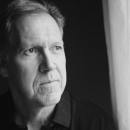The Man from Muscle Shoals is the new tell-all memoir from RICK HALL. It is available now wherever books are sold from Heritage Builders Publishing, with a Foreword by famed music historian Peter Guralnick.
Rick Hall made music history when he founded FAME Recording Studios in Muscle Shoals, Alabama. Rick went on to earn international fame and eventually a Grammy for lifetime achievement. In the days when Martin Luther King Jr. was marching for freedom, Rick proved to be a civil rights pioneer through his music. His open collaboration among black and white artists was a revolutionary cultural standard not only to "deep south" Alabama, but to the nation at large. FAME's color blind atmosphere, and the raw music it produced, would help shape American culture during its most troubled and tumultuous time.
Rick Hall, the "Father of the Muscle Shoals Sound," helped define a generation by pioneering a new sound that would inspire artists, give birth to new kinds of music and launch the careers of hundreds of superstars. Record executives literally flocked to Muscle Shoals for Rick to produce and engineer a mind-boggling array of major artists, including Aretha Franklin, Wilson Pickett, Etta James, Alabama, Tom Jones, Allman Brothers, The Osmonds, Alicia Keys and so many more. With more than 300 hit singles to his credit, and more than 40 Gold and Platinum records, Hall is indisputably the top producer of successful Pop, Rock, R&B and Country records in the world.
The book comes with a bonus DVD of the Grammy Award-winning documentary, Muscle Shoals.
Hallels: Rick, thanks for doing this interview with us. Why did you decide to write a memoir?
It started out as a daily diary and became so big I had to turn it into a book of 500 pages. Then I edited it to 400 pages. It took approximately 5 years to write it.
Hallels: Many have often described you as the "Father of the Muscle Shoals Sound." How would you define the Muscle Shoals Sound?
Being a country musician, singer and songwriter helped but close mic'ing the kick drum and bass and then playing in sync with each other and my many genres of music blended and influenced the Muscle Shoals Sound. Combining the bass and kick drum gave my productions that heavy African sound and soul. Of course, the mixture of country, soul, rock and blues helped too.
Hallels: You have worked with such a diverse group of singers from Aretha Franklin to the Osmonds, Wilson Pickett, Etta James, Alabama, Tom Jones, Allman Brothers, The Osmonds, Alicia Keys and so may others. Can you recall one of your most memorable experiences working with these talented singers?
Yes of course Aretha comes to mind but Clarence Carter was a joy to work with in the early days before black music became old hat and I had to move from black artists to pop white artists to keep the momentum going. Clarence Carter was black, blind and from Alabama but could have given Ray Charles a run for his money had we been with a major label who had the money and power to have done the job! Clarence was a great man and I loved him on "Patches" which went to #1.
Hallels: What was it like recording African American artists in Alabama during the height of the Civil Rights Movement? Why was the black community so comfortable with you?
It was tough and dangerous! But it was fun, fun, fun and I loved it because black people were very good to me and so was black radio and they all trusted me not to sell them short! They believed in me and of course I had gone through what they were going through, but of course, I was white and could get in the doors at the major record labels. Remember, no one was poorer than I was and they sensed that I had feelings for them because I had been through what they were going through!
Hallels: Later, in your career you turned to produce many country artists. One of the acts that you really pushed to fame was Shenandoah. Why did you turn to country music? And who were some of the other country artists that you produced?
Shenandoah was just one of many country acts I produced. I produced seven #1 records for them with the help and songwriting of Robert Byrne. But they, like many others, left me and sued to get out of their contract with me and CBS Records. I produced many other larger acts in the country genre such as Alabama, The Gatlin Brothers, Jerry Reed, Bobbie Gentry, TG Sheppard, Billy Joe Royal and Mac Davis. I was at home with country music and remember, I was country and gospel before I became a pop and R&B producer and had big hits on Roy Orbison, Brenda Lee and George Jones as a songwriter. I also played in a band called the Country Pals and had a 30 minute live radio show in Hamilton, Alabama for four years and I played square dances three nights a week. Of course, I needed some income for food and gas for my car.
Hallels: Also, recently you became a Christian, tell us more about your conversion?
I joined the Free Will Baptist Church when I was approximately 12 years old but back slid through my life until about 18 months ago when I was saved and joined a Southern Baptist church. I will be a Christian until I die.
Hallels: You have lived a very full and well-accomplished life. If you have to name two of your greatest achievements, what would they be?
Jesus Christ saving my soul!!! Fathering 3 wonderful sons and five grandchildren who I thank God for every day!!
Hallels: Your career is legendary. Any advice for today's young artists?
Winners Never Quit and Quitters Never Win! If God gave you a talent you must work on it to be great! Remember to work on it to be great and have a good work ethic and strive to be the best.


















